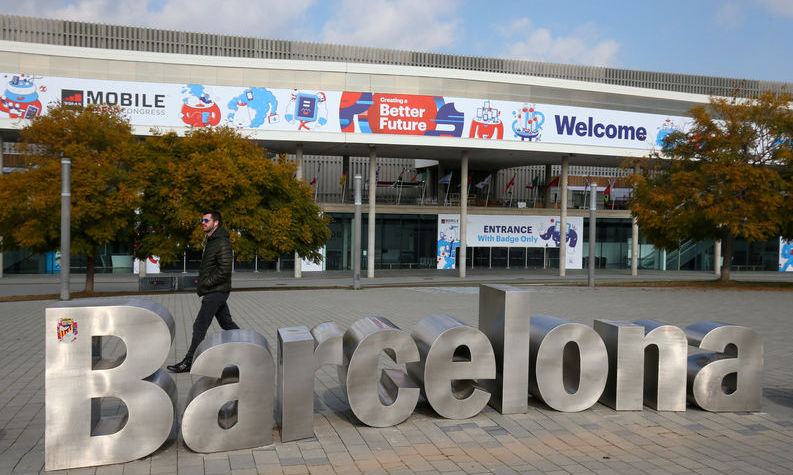Mobile industry set to upstage smarter everything at Barcelona show
February 24, 20181.1K views0 comments
Artificial intelligence promise to upstage familiar technology industry themes like 5G, the Internet of Things and virtual reality at next week’s Mobile World Congress, Europe’s biggest annual technology industry gathering.
Telecom operators are looking to artificial intelligence as a potential money-spinner to combat stagnating mobile service revenues as once-lucrative features like text messaging have become commoditized and customer growth wanes as almost everyone who can afford a phone and a data plan already has one.
Artificial intelligence, or AI, uses computers to perform tasks normally requiring human intelligence, such as taking decisions, recognizing text, speech, and images, or translating foreign languages.
Several big-name telecom providers are launching own-brand home digital assistants which are two-way speakers such as those used by Amazon’s Alexa or Google’s Home.
France’s Orange has Djingo; Germany’s Deutsche Telekom Magenta and Spain’s Telefonica Aura, market research firm Ovum said.
Device makers also spot a marketing opportunity for their latest glass-and-metal phones by including AI features inside to help cameras take smarter pictures or to anticipate the interests of their users.
But the industry needs to show it can do more with AI than play buzzword bingo, Ben Wood, a consumer electronics analyst at CCS Insight, said.
“Although we’re hugely enthusiastic about the technology itself, we’re increasingly concerned about the way in which it’s being marketed,” he said.
Barcelona will feature a series of announcements by mobile operators which want to reinvent themselves as digital ‘platforms’ – offering apps such as video messaging; music streaming or mobile video on demand on top of their traditional voice- and data-driven services.
Turkcell, for example, aims to offer its Lifecell platform, which includes a range of apps for messaging, entertainment, music, TV, and e-commerce, to foreign partners at the event.
The industry also wants to do much more with the data it collects from its users which will give network operators insights into spending patterns. Processing new streams of data from networks of industrial or road sensors also holds promise.
See also: LG prepares K Series smartphone updates for MWC 2018
Yet this pits them against the likes of U.S. tech giants Amazon, Google or Facebook that have proven adept at recruiting users and exploiting their data to sell products, services or advertising.
Asian smartphone makers will launch an array of new phones this weekend, but many are international versions of models already on sale in China, which with 1.4 billion subscribers is, by far, the world’s biggest mobile market.
The big smartphone launch on Sunday evening by Samsung of its new flagship phone, the Galaxy S9, ahead of the conference will have a focus on dual camera features, Wood said.
Cameras, the more the merrier, are all the rage, with some phone models boasting four to five built-in cameras, said.
The exhibition halls in Barcelona will be full of talk of ultra-fast mobile video, connected cars, factory automation, digital health and smarter cities.
Also, 5G, long the subject of arcane technical debates and an elusive search for concrete applications, is finally getting down to business. The first commercial 5G roll-outs begin this year and next in the United States, Korea, and Japan, creating new revenue streams for operators and beaten-down equipment makers.
But 5G remains an abstraction for consumers, Forrester analyst Thomas Husson wrote in a blog post ahead of the show.
Early 5G devices are set to go on show next week after smartphone chip maker Qualcomm earlier this month announced 5G-ready chips with 18 network operators and 19 device makers, analysts said.

